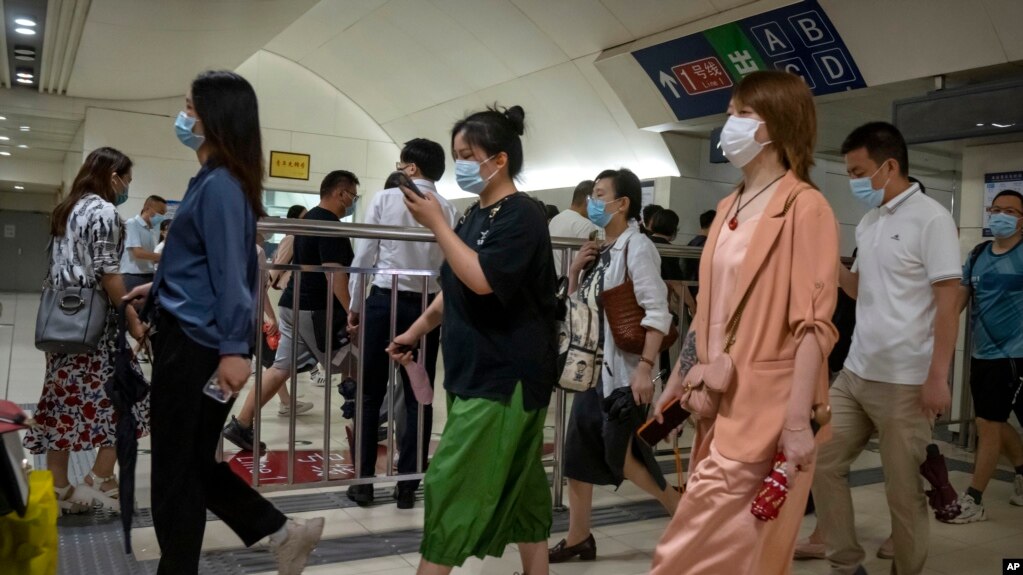
Driven by strong public grievances and public opinion, the Chinese government finally issued the "New Ten Articles" epidemic prevention regulations aimed at loosening the extreme epidemic prevention measures of "dynamic clearing". Not only does it make it difficult for many young people to find jobs, but college graduates also suffer setbacks in finding jobs.
The New York Times quoted a 21-year-old female college student surnamed Liu in Beijing as saying that anyone who has lived in China during the epidemic will find the country's future increasingly uncertain.
For many Chinese people, the extreme epidemic prevention and control measures that lasted for nearly three years were absolutely suffocating. They not only suffocated life, but also suffocated production and the economy, resulting in a sharp shrinkage of employment opportunities and an extremely severe employment situation. A female college student surnamed Liu will graduate next year, majoring in tourism management. Ms. Liu told the New York Times that she has submitted more than 80 job applications so far, but has not received a single job offer.
Ms. Liu said that many young people listen to the Chinese Communist Party and do what the Party tells them to do, but they find that the reality disappoints them. "What we're seeing is people are trying to get by."
The extreme containment measures of the Beijing authorities "dynamically cleared" have caused public dissatisfaction in recent weeks. Not only did residents of major cities such as Beijing and Shanghai take to the streets very rarely to protest the containment measures, but many people across the country, including Tsinghua University, Students from the university also held blank papers and staged silent protests, creating a new way of protest known as the "blank paper movement". Protesters in Shanghai even chanted slogans such as "Xi Jinping step down" and "Communist Party steps down".
These large-scale protests and demonstrations, which have occurred for the first time since Chinese President Xi Jinping came to power, or even the Tiananmen Square massacre in 1989, may have made the Chinese authorities realize that blindly implementing extreme blockades regardless of people's livelihood and economic costs not only severely damages the economy but also Therefore, a sharp deterioration in the employment situation will constitute the greatest threat to social stability.
Perhaps because of the fear that the demonstrations and protests may soon become a prairie fire, the Chinese authorities this week without any warning, planning, or preparation, suddenly introduced the "New Ten Articles" new epidemic prevention regulations, greatly relaxing the epidemic prevention and control Measures to open up the public from staying at home, without providing a negative nucleic acid test certificate or health code, they can enter and exit public places, go to work, go to school, go shopping, and even take planes and high-speed rail for sightseeing and visit relatives and friends.
The problem is that three days of freezing is not a one-day cold, and the economy and job market, which have been hit hard by extreme lockdown measures, cannot recover immediately and return to normal as the lockdown measures are loosened. China's job market is so overcrowded that it is no longer possible to provide today's young people and college graduates with the jobs their parents enjoyed during the boom years.
Unemployment among young people in China remains near record highs, while another 11.6 million new university graduates will join the job search next year. Not only are these young people under great employment pressure, but their parents also feel the pressure.
“Students want to protest because we feel our situation is getting worse,” said a female college student in Beijing who gave her surname as Liu, who was interviewed by The New York Times.
China's current younger generation grew up in a relatively prosperous economic environment. Their parents caught up with the great opportunity of China's booming economy, with stable employment, rising family income, and better quality of life. These young people have been told from the first day of school, and they themselves believe, that as long as they work hard, the future will be better.
"If you get a good education, you will definitely get a high-paying job. This is a promise. But this promise can no longer be fulfilled," said the Mercator China Institute, the largest think tank in Germany and Europe specializing in China issues. chief economist Max Zenglein told The New York Times.
"Being the first generation of people to be disappointed by this can cause a lot of psychological pressure," Zeng Lian said.
Xi Jinping once said that "the country will only be good if the young people are good". He also said that young people in China are full of optimism and entrepreneurial spirit. But empty talk stands in stark contrast to reality. In July of this year, the unemployment rate of young people aged 16 to 24 in China was close to 20%, which is also a new high since China began publishing this data in 2018. Youth unemployment has fallen slightly from its peak of late, but is still three times the national average in China.






0 Comments